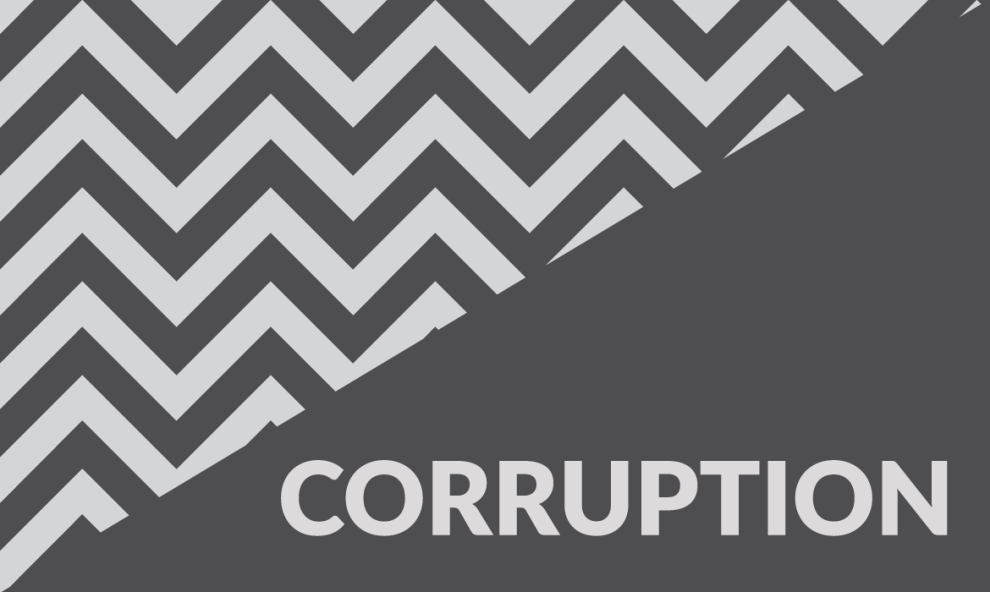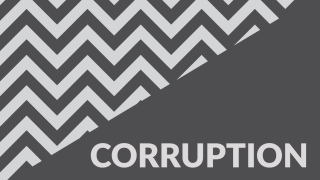Corruption was a matter for profound reflection when the Founding Fathers of the North American nation deliberated on the elements that would be embodied in its new Constitution. Alexander Hamilton argued: “Purge [the British] constitution of its corruption… and it would become an impracticable government. As it stands at present, with all its supposed defects, it is the most perfect government which ever existed”. For Hamilton, corruption was an inevitable cost of public life. In the end Hamilton lost, to the integral system of checks and balances postulated by James Madison.
Two hundred thirty years later, the public argumentation in Mexico is nearly identical. The notion that swarms the environment is that, first, it’s always been like this, so it always will be. Second, since corruption permits things to function, its costs are minor. Although there are measurements suggesting an incremental cost (more than 1% of the annual GDP), it is evident that it has been mutating and that what might have been valid in the past is currently not necessarily so.
Beyond the specific characteristics of the phenomenon and how it has changed, what should now be of concern to all of us is not the fact that a public servant enriches himself while in power (something usual), but the fact that corruption has become generalized, its tentacles affixed to all the political parties and increasingly penetrating all of society. If it previously had been a factor that allowed for attenuating conflicts or accelerating the implementation of projects, above all public works, an ancestral wellspring of corruption, today it comprises a metastatic phenomenon that could end up paralyzing not only the government but the country in general.
In his excellent essay in the February issue of Nexos, Luis Carlos Ugalde describes the nature and dimensions of the phenomenon, illustrating the manner in which the pyramidal corruption of the era of authoritarian presidentialism has been “democratizing” itself on becoming incorporated into all levels of government, parties, and branches of government. What previously was concentrated and an instrument of political cohesion has transmuted into a mechanism of political control in the hands of a growing number of actors. Worse yet, its ubiquitousness has generated widespread repudiation in society, ire that has become hatred.
The democratization of corruption has engendered a working-example effect that, combined with impunity, has spread to other ambits of the society. While the corruption of the past was typical of the availability of privileged intelligence within the government (for example buying land on knowing that a highway would be built there), use of the public expenditure for private gain or of the interaction between public and private actors (such as governmental purchases), corruption at present is frequent in transactions between private actors (such as purchasing advertising) and has become deeply entrenched in the definition of standard procedure (for example, hospitals demanding unnecessary studies that swell patients’ bills).
Rationalizing corruption as something ancestral and cultural authorizes the spawning and nurturing of political clienteles. The parties have devoted themselves to legislating increasingly extreme (and absurd) regulations for financing their campaigns, rules that they are the first to breach: one calculation suggests that the average political campaign costs twenty times what the legislation sanctions.
More than an exclusively monetary phenomenon, corruption has altered the lexicon, the discourse and the modus operandi: this might appear to merely be a shift in semantics, but in what it in reality implies is that corruption has ceased to be merely a “necessary evil” and proceeds to be the only way of conducting public life. That “small” step infers that there are no longer limits and that anything goes: all vestige of community, organized society or dominion of the law disappears and becomes unattainable. History shows that this is the best culture medium for messianic, populist and authoritarian leaderships to emerge.
The greater part of the proposals for solution do not attack more than the symptoms. Law making in matters of transparency has become mired in a set of exceptions that diverse governmental entities have attempted to interpose, some more logical than others. But the dynamic of that discussion is revelatory in itself: every effort is concentrated on rendering transparency and auditing (which are important), but not on eliminating the causes of the phenomenon. The very name of the instrument proposed for combating it is suggestive of its limitations: the “national anti-corruption system”.
The problem of all of the formulas presented for combating corruption is that they do not dare to recognize the backstory, above all the reason why it has “democratized”. In a word, Mexico’s problem is not one of corruption, violence, criminality or drugs. Its problem is the absence of a professional system of government. Mexico went from an authoritarian patrimonialism of controlled corruption to a patrimonialistic disorder in which corruption has metastasized. Nothing is going to change until a modern system of government is constructed, with a professional and apolitical bureaucracy, secured by anchor to the Reign of the Law.
Until this takes place, the decomposition will persist and the economy will continue to yield mediocre results. Reforms are necessary, but without government and without law nothing will change.
Does Corruption Matter?





Comments